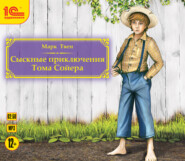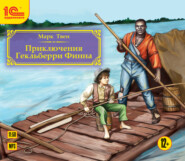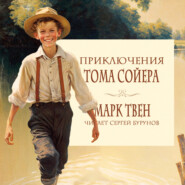По всем вопросам обращайтесь на: info@litportal.ru
(©) 2003-2024.
✖
Mark Twain's Speeches
Настройки чтения
Размер шрифта
Высота строк
Поля
I was thinking over some on my way up here. They were the illustrations I spoke about to the young lady on the way up. And I’ve come to the conclusion, curious though it is, that I can use every one of these freaks of memory to teach you all a lesson. I’m convinced that each one has its moral. And I think it’s my duty to hand the moral on to you.
Now, I recall that when I was a boy I was a good boy – I was a very good boy. Why, I was the best boy in my school. I was the best boy in that little Mississippi town where I lived. The population was only about twenty million. You may not believe it, but I was the best boy in that State – and in the United States, for that matter.
But I don’t know why I never heard any one say that but myself. I always recognized it. But even those nearest and dearest to me couldn’t seem to see it. My mother, especially, seemed to think there was something wrong with that estimate. And she never got over that prejudice.
Now, when my mother got to be eighty-five years old her memory failed her. She forgot little threads that hold life’s patches of meaning together. She was living out West then, and I went on to visit her.
I hadn’t seen my mother in a year or so. And when I got there she knew my face; knew I was married; knew I had a family, and that I was living with them. But she couldn’t, for the life of her, tell my name or who I was. So I told her I was her boy.
“But you don’t live with me,” she said.
“No,” said I, “I’m living in Rochester.”
“What are you doing there?”
“Going to school.”
“Large school?”
“Very large.”
“All boys?”
“All boys.”
“And how do you stand?” said my mother.
“I’m the best boy in that school,” I answered.
“Well,” said my mother, with a return of her old fire, “I’d like to know what the other boys are like.”
Now, one point in this story is the fact that my mother’s mind went back to my school days, and remembered my little youthful self-prejudice when she’d forgotten everything else about me.
The other point is the moral. There’s one there that you will find if you search for it.
Now, here’s something else I remember. It’s about the first time I ever stole a watermelon. “Stole” is a strong word. Stole? Stole? No, I don’t mean that. It was the first time I ever withdrew a watermelon. It was the first time I ever extracted a watermelon. That is exactly the word I want—“extracted.” It is definite. It is precise. It perfectly conveys my idea. Its use in dentistry connotes the delicate shade of meaning I am looking for. You know we never extract our own teeth.
And it was not my watermelon that I extracted. I extracted that watermelon from a farmer’s wagon while he was inside negotiating with an other customer. I carried that watermelon to one of the secluded recesses of the lumber-yard, and there I broke it open.
It was a green watermelon.
Well, do you know when I saw that I began to feel sorry – sorry – sorry. It seemed to me that I had done wrong. I reflected deeply. I reflected that I was young – I think I was just eleven. But I knew that though immature I did not lack moral advancement. I knew what a boy ought to do who had extracted a watermelon – like that.
I considered George Washington, and what action he would have taken under similar circumstances. Then I knew there was just one thing to make me feel right inside, and that was – Restitution.
So I said to myself: “I will do that. I will take that green watermelon back where I got it from.” And the minute I had said it I felt that great moral uplift that comes to you when you’ve made a noble resolution.
So I gathered up the biggest fragments, and I carried them back to the farmer’s wagon, and I restored the watermelon – what was left of it. And I made him give me a good one in place of it, too.
And I told him he ought to be ashamed of himself going around working off his worthless, old, green watermelons on trusting purchasers who had to rely on him. How could they tell from the outside whither the melons were good or not? That was his business. And if he didn’t reform, I told him I’d see that he didn’t get any more of my trade – nor anybody, else’s I knew, if I could help it.
You know that man was as contrite as a revivalist’s last convert. He said he was all broken up to think I’d gotten a green watermelon. He promised the he would never carry another green watermelon if he starved for it. And he drove off – a better man.
Now, do you see what I did for that man? He was on a downward path, and I rescued him. But all I got out of it was a watermelon.
Yet I’d rather have that memory – just that memory of the good I did for that depraved farmer – than all the material gain you can think of. Look at the lesson he got! I never got anything like that from it. But I ought to be satisfied: I was only eleven years old, but I secured everlasting benefit to other people.
The moral in this is perfectly clear, and I think there’s one in they next memory I’m going to tell you about.
To go back to my childhood, there’s another little incident that comes to me from which you can draw even another moral. It’s about one of the times I went fishing. You see, in our house there was a sort of family prejudice against going fishing if you hadn’t permission. But it would frequently be bad judgment to ask. So I went fishing secretly, as it were – way up the Mississippi. It was an exquisitely happy trip, I recall, with a very pleasant sensation.
Well, while I was away there was a tragedy in our town. A stranger, stopping over on his way East from California; was stabbed to death in an unseemly brawl.
Now; my father was justice of the peace, and because he was justice of the peace he was coroner; and since he was coroner he was also constable; and being constable he was sheriff; and out of consideration for his holding the office of sheriff he was likewise county clerk and a dozen other officials I don’t think of just this minute.
I thought he had power of life or death, only he didn’t use it over other boys. He was sort of an austere man. Somehow I didn’t like being round him when I’d done anything he, disapproved of. So that’s the reason I wasn’t often around.
Well, when this gentleman got knifed they communicated with the proper authority; the coroner, and they laid, the corpse out in the coroner’s office – our front sitting-room – in preparation for the inquest the next morning.
About 9 or 10 o’clock I got back from fishing. It was a little too late for me to be received by my folks, so I took my shoes off and slipped noiselessly up the back way to the sitting-room. I was very tired, and I didn’t wish to disturb my people. So I groped my way to the sofa and lay down.
Now, I didn’t know anything of what had happened during my absence. But I was sort of nervous on my own account-afraid of being caught, and rather dubious about the morning affair. And I had been lying there a few moments when my eyes gradually got used to the darkness, and I became aware of something on the other side of the room.
It was something foreign to the apartment. It had an uncanny appearance. And I sat up looking very hard, and wondering what in heaven this long, formless, vicious-looking thing might be.
First I thought I’d go and see. Then I thought, “Never mind that.”
Mind you, I had no cowardly sensations whatever, but it didn’t seem exactly prudent to investigate. But I somehow couldn’t keep my eyes off the thing. And the more I looked at it the more disagreeably it grew on me. But I was resolved to play the man. So I decided to turn over and count a hundred, and let the patch of moonlight creep up and show me what the dickens it was.
I turned over and tried to count, but I couldn’t keep my mind on it. I kept thinking of that grewsome mass. I was losing count all the time, and going back and beginning over again. Oh no; I wasn’t frightened – just annoyed. But by the time I’d gotten to the century mark I turned cautiously over and opened my eyes with great fortitude.
The moonlight revealed to me a marble-white human hand. Well, maybe I wasn’t embarrassed! But then that changed to a creepy feeling again, and I thought I’d try the counting again. I don’t know how many hours or weeks it was that I lay there counting hard. But the moonlight crept up that white arm, and it showed me a lead face and a terrible wound over the heart.
I could scarcely say that I was terror-stricken or anything like that. But somehow his eyes interested me so that I went right out of the window. I didn’t need the sash. But it seemed easier to take it than leave it behind.
Now, let that teach you a lesson – I don’t know just what it is. But at seventy years old I find that memory of peculiar value to me. I have been unconsciously guided by it all these years. Things that seemed pigeon-holed and remote are a perpetual influence. Yes, you’re taught in so many ways. And you’re so felicitously taught when you don’t know it.
Here’s something else that taught me a good deal.
When I was seventeen I was very bashful, and a sixteen-year-old girl came to stay a week with us. She was a peach, and I was seized with a happiness not of this world.
One evening my mother suggested that, to entertain her, I take her to the theatre. I didn’t really like to, because I was seventeen and sensitive about appearing in the streets with a girl. I couldn’t see my way to enjoying my delight in public. But we went.
I didn’t feel very happy. I couldn’t seem to keep my mind on the play. I became conscious, after a while, that that was due less to my lovely company than my boots. They were sweet to look upon, as smooth as skin, but fitted ten time as close. I got oblivious to the play and the girl and the other people and everything but my boots until – I hitched one partly off. The sensation was sensuously perfect: I couldn’t help it. I had to get the other off, partly. Then I was obliged to get them off altogether, except that I kept my feet in the legs so they couldn’t get away.
From that time I enjoyed the play. But the first thing I knew the curtain came down, like that, without my notice, and – I hadn’t any boots on. What’s more, they wouldn’t go on. I tugged strenuously. And the people in our row got up and fussed and said things until the peach and I simply had to move on.
We moved – the girl on one arm and the boots under the other.

















